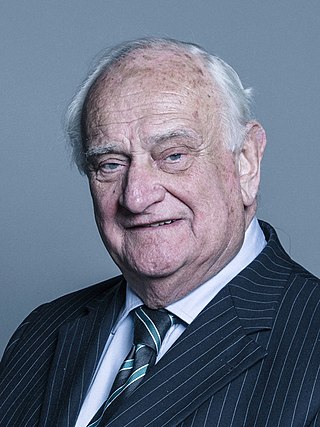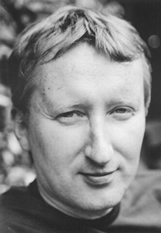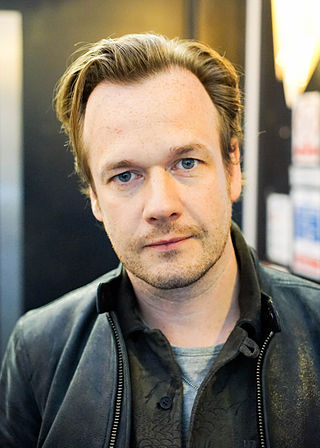Gareth Higgins is a writer from Belfast, Northern Ireland now living in Asheville, North Carolina. He is the founding director of the Wild Goose Festival.
He is a graduate in sociology from Queen's University of Belfast (BA, PhD). He was a co-founder (in 1998) of the zero28 Project, a faith-based peace and justice initiative in Northern Ireland. He has written and spoken widely on religion and conflict, art and spirituality and film, with his work appearing in The Independent, The Irish Times, Sojourners, and Third Way Magazine, among others.
He appears regularly on BBC Radio, and he and Jett Loe co-present a film review podcast called 'The Film Talk'.
Anti-Catholicism in Northern Ireland, co-authored with John D Brewer (Palgrave, 1998)
How Movies Helped Save My Soul: Finding Spiritual Fingerprints in Culturally Significant Films (Relevant Books, 2003)
Religion, Civil Society, and Peace in Northern Ireland, co-authored by John D Brewer and Francis Teeney (Oxford University Press, 2011)
Cinematic States (Burnside Books, 2013)
Chapter in: Researching the Troubles: Social Science Perspectives on the Northern Ireland Conflict (Mainstream, 2004)
Chapter in: Artisans of Peace: Grassroots Peacemaking Among Christian Communities (Orbis, 2003)
Article on 'Free Presbyterianism' in The Encyclopaedia of Ireland (Gill & Macmillan, 2004)
How Not to Be Afraid: Seven Ways to Live When Everything Seems Terrifying (Canterbury Press Norwich, 2021)

The Troubles were an ethno-nationalist conflict in Northern Ireland that lasted for about 30 years from the late 1960s to 1998. Also known internationally as the Northern Ireland conflict, it began in the late 1960s and is usually deemed to have ended with the Good Friday Agreement of 1998. Although the Troubles mostly took place in Northern Ireland, at times violence spilled over into parts of the Republic of Ireland, England, and mainland Europe.

Sir Kenneth Charles Branagh is a British actor and filmmaker. Born in Belfast and raised primarily in Reading, Berkshire, Branagh trained at RADA in London and served as its president from 2015 to 2024. His accolades include an Academy Award, four BAFTAs, two Emmy Awards, a Golden Globe Award, and an Olivier Award. He was appointed a Knight Bachelor in 2012, and was given Freedom of the City in his native Belfast in 2018. In 2020, he was ranked in 20th place on The Irish Times's list of Ireland's greatest film actors.

George John Mitchell Jr. is an American politician, diplomat, and lawyer. A leading member of the Democratic Party, he served as a United States senator from Maine from 1980 to 1995, and as Senate Majority Leader from 1989 to 1995. After retiring from the Senate, Mitchell played a leading role in negotiations for peace in Northern Ireland and the Middle East. He was appointed United States Special Envoy for Northern Ireland (1995–2001) by President Clinton and as United States Special Envoy for Middle East Peace (2009–2011) by President Barack Obama.
The Northern Ireland peace process includes the events leading up to the 1994 Provisional Irish Republican Army (IRA) ceasefire, the end of most of the violence of the Troubles, the Good Friday Agreement of 1998, and subsequent political developments.

Robert Henry Alexander Eames, Baron Eames, is an Anglican bishop and life peer, who served as Primate of All Ireland and Archbishop of Armagh from 1986 to 2006.

Martin Dillon is an Irish author, journalist, and broadcaster. He has won international acclaim for his investigative reporting and non-fiction works on the Troubles, including his bestselling trilogy, The Shankill Butchers, The Dirty War and God and the Gun, about the Northern Ireland conflict. The historian and scholar, Dr. Conor Cruise O'Brien, described him as "our Virgil to that Inferno". The Irish Times hailed him as "one of the most creative writers of our time".
Terence George is an Irish screenwriter and director. Much of his film work involves "The Troubles" in Northern Ireland.

Colin Bateman is a novelist, screenwriter and former journalist from Bangor, County Down, Northern Ireland.
Ian Adamson OBE was an Ulster Unionist Party (UUP) politician and paediatrician, who was the Lord Mayor of Belfast from 1996 to 1997, having been Deputy Lord Mayor from 1994 to 1995.

Monica Mary McWilliams is a Northern Irish academic, peace activist, human rights defender and former politician.

Peter Rollins is a Northern Irish writer, public speaker, philosopher, producer and theologian.

Malachi John O'Doherty is a journalist, author and broadcaster in Northern Ireland. He is the producer and presenter of the audio blog Arts Talk.

David Wylie Bleakley CBE was a Northern Irish politician and peace campaigner.

John David Brewer HDSSc, MRIA, FRSE, FAcSS, FRSA is an Irish-British sociologist who was the former President of the British Sociological Association (2009–2012), and was Professor of Post Conflict Studies in the Senator George J. Mitchell Institute for Global Peace, Security and Justice at Queen's University Belfast (2013–2023), and is now Emeritus Professor in the Mitchell Institute. He was awarded the 2023 Distinguished Service Prize by the British Sociological Association for service to British sociology. He is also Honorary Professor Extraordinary, Stellenbosch University (2017–present) and Honorary Professor of Sociology, Warwick University (2021–present). He was formerly Sixth-Century Professor of Sociology at the University of Aberdeen (2004–2013). He is a member of the United Nations Roster of Global Experts for his work on peace processes (2010–present). He was awarded an honorary doctorate in 2012 from Brunel University for services to social science.
Baháʼí Faith in Northern Ireland begins after a century of contact between Irishmen and the Baháʼí Faith beyond the island and on the island. The members of the religion elected its first Baháʼí Local Spiritual Assembly in 1949 in Belfast. The Baháʼís held an international conference in Dublin in 1982 which was described as “…one of the very few occasions when a world event for a faith community has been held in Ireland". By 1993 there were a dozen assemblies in Northern Ireland. By 2005 Baháʼí sources claim some 300 Baháʼís across Northern Ireland.

A Letter from Ulster is a 1942 documentary by Ulster-born movie director Brian Desmond Hurst who, along with his lifelong friend Terence Young (scriptwriter) and fellow Ulsterman and Assistant Director William (Bill) MacQuitty, created this film promoting a sense of community between the people of Northern Ireland and over one hundred thousand troops from the US based in Northern Ireland at the time. William Alwyn provided music.
The Centre for Theology and Public Issues (CTPI) is a research centre based in New College, the School of Divinity at the University of Edinburgh. Founded in 1984 by Duncan B. Forrester, CTPI promotes Christian theological reflection and research on important public issues. CTPI research is global in orientation and rooted in the tradition of public theology. Issues are examined by bringing together theologians, social scientists, church leaders, policy makers, artists, and the public. CTPI has particularly close relations with the Scottish Parliament and other institutions of Scottish public life. The current director is Jolyon Mitchell.

Thomas Paul Burgess is an academic, novelist and musician from Belfast, Northern Ireland.
Winnie M Li is an American writer, novelist and activist based in England. Her first novel Dark Chapter, released in 2017, was based on her own experience of a stranger rape in 2008. Her second novel Complicit was published in 2022.
Lost Lives: The Stories of the Men, Women and Children who Died as a Result of the Northern Ireland Troubles is a book that details the lives of people that died as a result of The Troubles in Northern Ireland. It was written by Brian Feeney, Seamus Kelters, David McKittrick, David McVea and Chris Thornton and published in 1999. The book was adapted into a film of the same name in 2019.